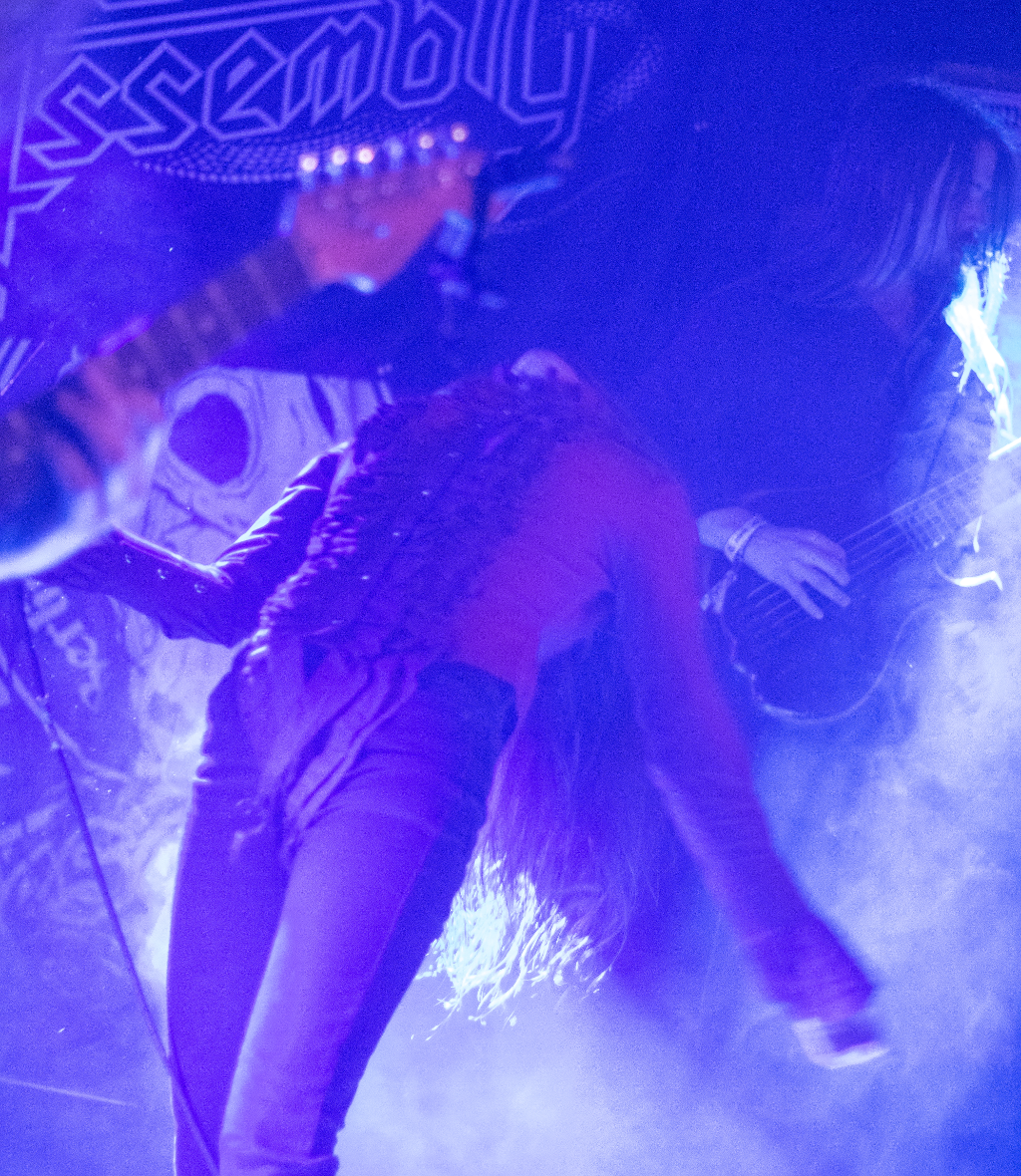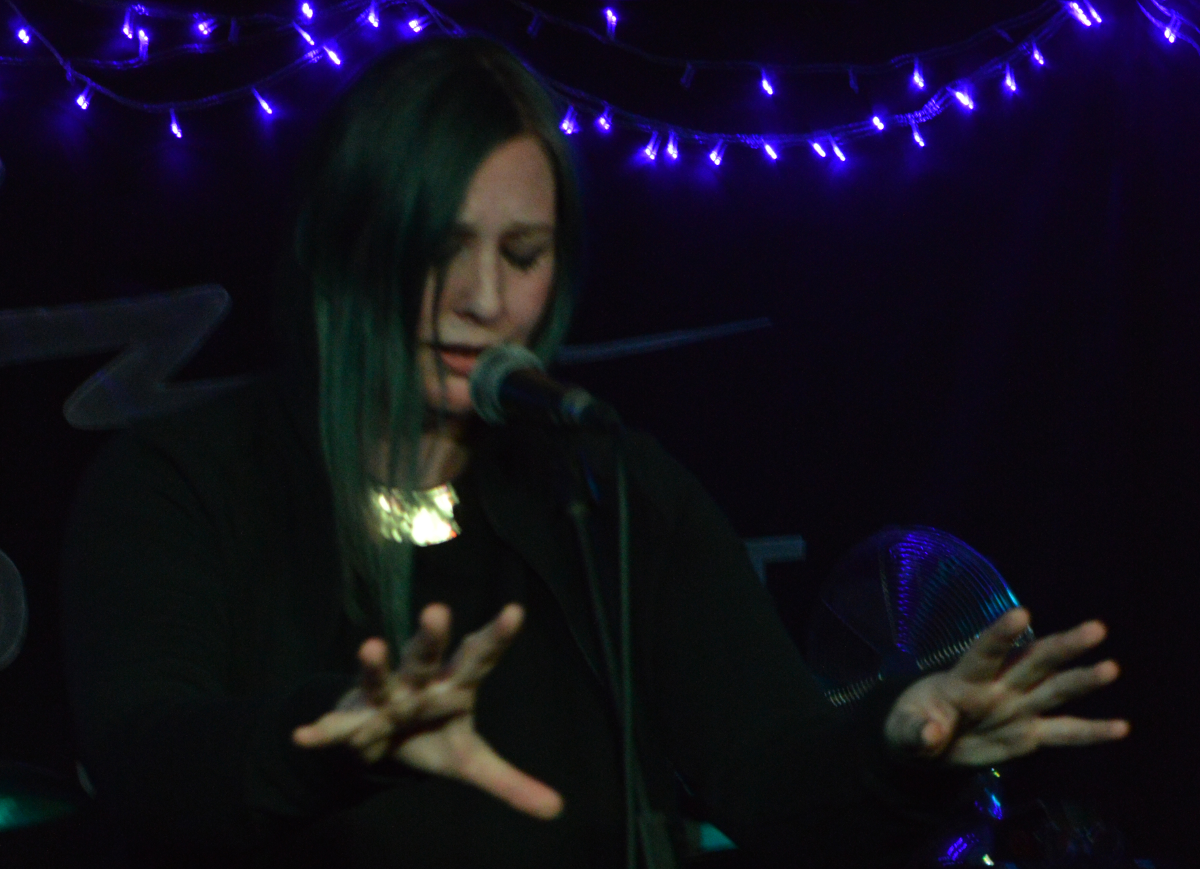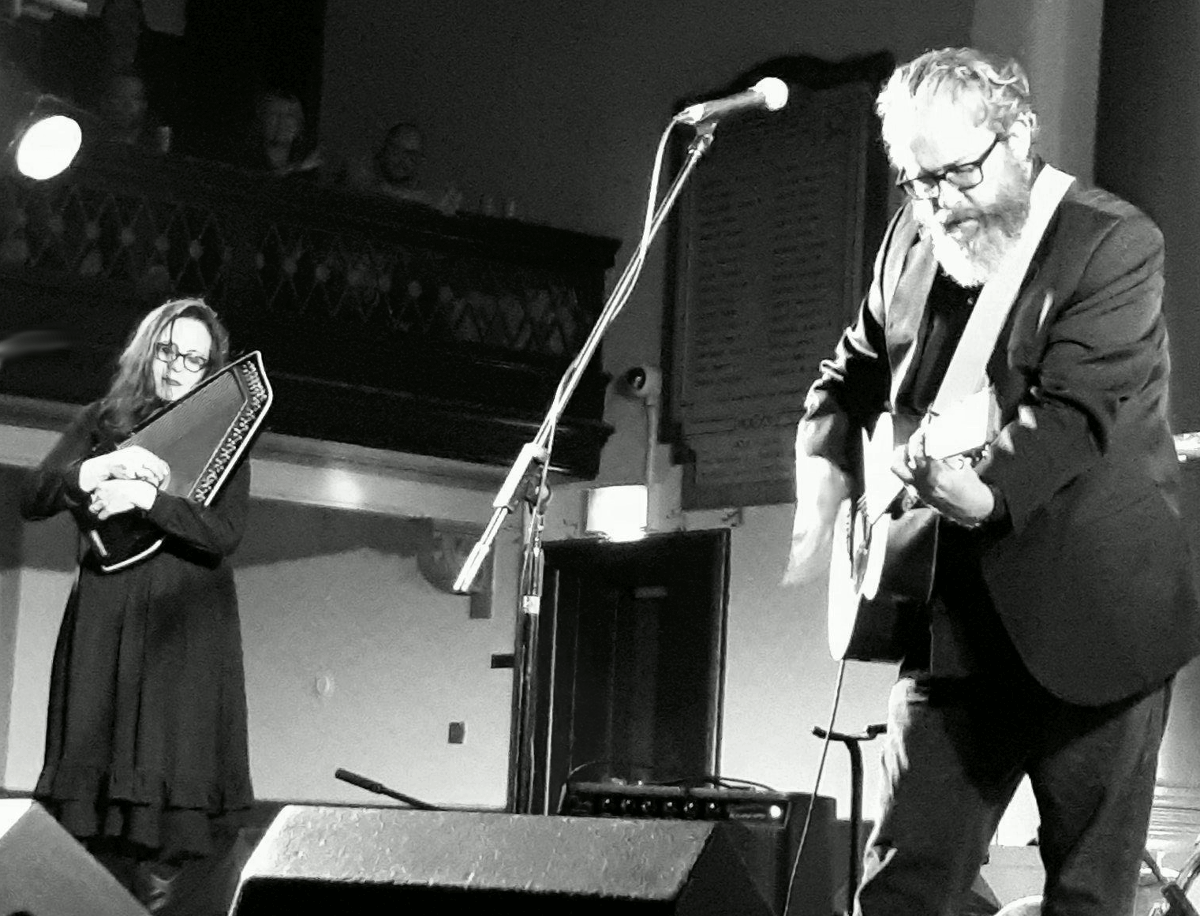The Vortex, London
20 October 2011
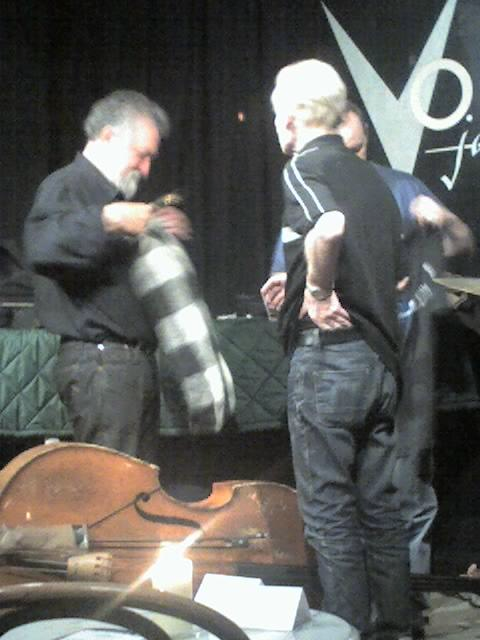 “Sorry we’re a little late in starting, we were meant to start at nine. I looked at my watch and it said ten to nine, then suddenly it said quarter past. That’s what happens when you stand at the bar talking shit.”
“Sorry we’re a little late in starting, we were meant to start at nine. I looked at my watch and it said ten to nine, then suddenly it said quarter past. That’s what happens when you stand at the bar talking shit.”
Evan Parker takes to the stage at The Vortex with this typically low-key opening gambit, a self-effacing remark which serves to both put the audience at its ease, and set the backdrop for the evening’s free improvisation. If the man that John Zorn described as “single-handedly [changing] the face of saxophone technique and saxophone music” wants to talk shit at the bar, then it perhaps behoves the rest of us to listen.
Tonight’s gig is another instalment of Parker’s monthly free improv residency at the venerable London institution, and here he’s in the company of bassist John Edwards and drummer Tony Marsh, both themselves stalwarts of the scene. With Barry Guy now decamped to Switzerland, Edwards is the bass stringsman of choice for everyone from Peter Brötzmann to Charles Hayward. And having done a stint in GOD, you know he’s up to the challenge. Tony Marsh has similarly bashed the skins for all the key figures on the European improvisation circuit, and his on-going partnership with Edwards will tonight be in evidence right from the get-go.It is Parker though, that represents the nucleus around which the electrons of Edwards and Marsh will orbit. Dressed all in black, his hair and beard now a distinguished grey, Parker thankfully looks the picture of robust health. Thankfully because Parker and his peer group, the ‘first wave’ of Europe’s improv elite are now, quite frankly, shocking on a bit: Brötzmann is 70, Eddie Prévost and Keith Rowe are 69 and 71 respectively, Tony Oxley is 73. Without wishing any of them into a premature grave, all these incredible musicians, who represent such a grid of connection between the American and the European, between the legends of free jazz and the modern wave of experimenters, won’t be around forever, and they should be caught whilst they are still alive and skronking.
Having contributed guest performances with everyone from Scott Walker to David Sylvian to Robert Wyatt, and having strongly influenced the peerless This Heat, and even playing on the B-Side of Vic Reeves’ unlikely 1991 Number One hit, “Dizzy,” Parker’s far-reaching influence and incursions into mainstream music belie the ferocious, take-no-prisoners sonic attach of his near fifty year career at the saxface. To sit in a small club and hear Evan Parker play the saxophone at full blast is akin to standing a little too close to the platform on the London tube and being hit full force by the wall of air movement and sound that accompanies the arrival of a train.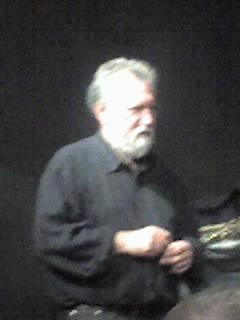 Tonight’s set comprises two 45 minute improvisations, built around a quick 20 minute beer break, with Parker in a more relaxed mood, his sax lines racing around giddily from the gentle fluttering of a butterfly’s wings to the fierce roaring of Asiatic Lion. Parker’s famed passages of circular breathing – non-stop virtuoso 20 minute sections that interweave harmonic layers into a contrapuntal web so dense that the ear can scarcely keep up – are absent tonight, replaced by short, staccato notes, some played in rapid fusillades, some left to hang along like a star in the night sky. At one point, though, Parker is using the sax as a percussion instrument, banging on it with his fist in a way that would have had Adolphe Sax pulling his hair out in despair.
Tonight’s set comprises two 45 minute improvisations, built around a quick 20 minute beer break, with Parker in a more relaxed mood, his sax lines racing around giddily from the gentle fluttering of a butterfly’s wings to the fierce roaring of Asiatic Lion. Parker’s famed passages of circular breathing – non-stop virtuoso 20 minute sections that interweave harmonic layers into a contrapuntal web so dense that the ear can scarcely keep up – are absent tonight, replaced by short, staccato notes, some played in rapid fusillades, some left to hang along like a star in the night sky. At one point, though, Parker is using the sax as a percussion instrument, banging on it with his fist in a way that would have had Adolphe Sax pulling his hair out in despair.
At the set’s conclusion I linger for a last drink, unwilling to leave the warm and uplifting slipstream of the trio’s sonic explorations. “Great set Mr Parker” I say as we finally exit (always the formal mode of address to an improv legend I feel). “Thanks very much for coming. Hope to see you again” replies Evan, swigging down a cold one at the bar. ‘You will indeed’ I say to myself as the cool night air of Gillett Square hits my face.
-David Solomons-
